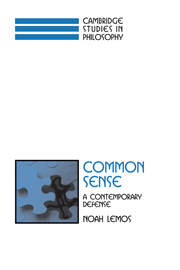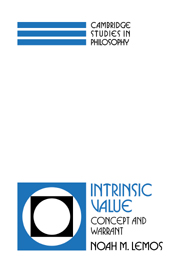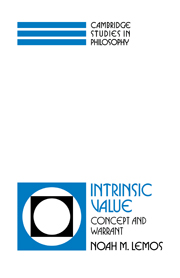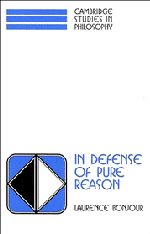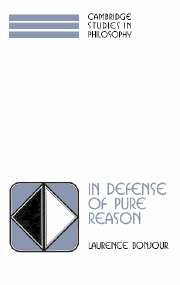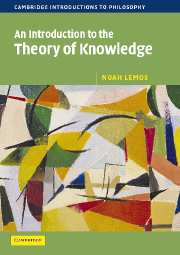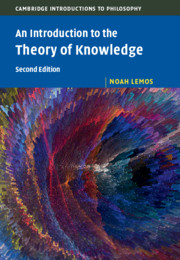Common Sense
In this 2004 book, Noah Lemos presents a strong defense of the common sense tradition, the view that we may take as data for philosophical inquiry many of the things we ordinarily think we know. He discusses the main features of that tradition as expounded by Thomas Reid, G. E. Moore and Roderick Chisholm. For a long time common sense philosophers have been subject to two main objections: that they fail to give any non-circular argument for the reliability of memory and perception; and that they pick out instances of knowledge without knowing a criterion for knowledge. Lemos defends the appeal to what we ordinarily think we know in both epistemology and ethics and thus rejects the charge that common sense is dogmatic, unphilosophical or question-begging. Written in a clear and engaging style, this book will appeal to students and philosophers in epistemology and ethics.
- Clearly and engagingly written
- Examines important issues in ethics and epistemology
- Re-establishes common sense as an important and credible philosophical tradition
Product details
June 2010Paperback
9780521143455
212 pages
229 × 152 × 12 mm
0.32kg
Available
Table of Contents
- Acknowledgements
- Preface
- 1. The common sense tradition
- 2. Common sense and reliability I
- 3. Common sense and reliability II
- 4. Reid, reliability, and Reid's wrong turn
- 5. Moore, skepticism, and the external world
- 6. Chisholm, particularism, and methodism
- 7. Common sense and a priori epistemology
- 8. Particularism, ethical skepticism, and moral philosophy
- Conclusion
- Selected bibliography
- Index.

